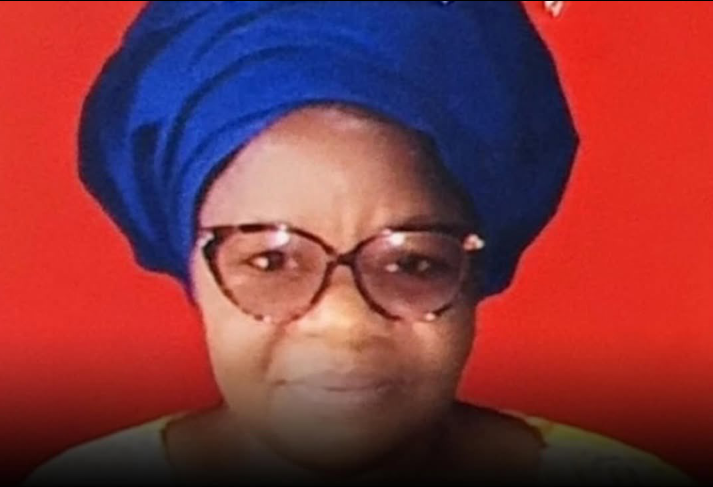
Ex-Bank MD Jailed Five Years for Stealing ₦32 Million and Sending Part to a Lover

In a shocking turn of events that has gripped Adamawa State’s banking sector, a former Managing Director of Bonghe Microfinance Bank, Grace Andreas Karka, has been sentenced to five years imprisonment after being found guilty of diverting ₦32 million belonging to the bank and transferring part of it to a man identified as Prince Moses Batalu. The judgment, delivered by Justice Benjamin Lawan Manji of the Adamawa State High Court, Yola, marks the end of a long legal battle that has exposed layers of betrayal, financial misconduct, and abuse of corporate trust.
The Economic and Financial Crimes Commission (EFCC) brought the charges against Karka after an internal audit of Bonghe Microfinance Bank uncovered massive irregularities in its financial records between August 2020 and March 2021. According to the EFCC, the former MD manipulated transactions, moved funds through the bank’s First Bank account (No. 201****57), and diverted millions into accounts associated with Batalu, a man who, as it turned out, was not even a customer of the bank. The revelation sent shockwaves through the financial community, raising fresh concerns about internal control systems and corporate accountability within Nigeria’s microfinance sector.
Investigations revealed that the fraudulent transfers were not isolated incidents but part of a carefully orchestrated scheme that lasted for several months. The EFCC noted that the bank’s records showed multiple unauthorized withdrawals and electronic transfers, many of which were disguised as legitimate business expenses. However, as the discrepancies piled up, the bank’s internal auditors became suspicious and initiated a probe that would eventually expose the fraud. Efforts to recover the missing funds failed, prompting the management to alert the anti-graft agency.
When the EFCC stepped in, investigators traced a significant portion of the missing ₦32 million to personal accounts connected to both Karka and Batalu. Despite initial denials, documentary evidence presented in court established a clear money trail leading directly to the former MD. The Commission’s counsel presented witnesses, including forensic accountants and bank officials, who testified about the suspicious transactions and the manipulation of account details. The evidence, according to Justice Manji, left no room for doubt about Karka’s culpability.
Throughout the trial, the defense sought to argue that the transactions were authorized and that the funds were used for legitimate business operations. Three witnesses were called to testify on her behalf, but their explanations failed to convince the court. Justice Manji, in his judgment, described Karka’s actions as a “gross betrayal of trust and deliberate abuse of office,” emphasizing that financial institutions rely heavily on integrity and fiduciary responsibility from their leaders. He ruled that the prosecution had successfully proven its case beyond reasonable doubt, convicting Karka of criminal conspiracy and cheating under the Adamawa State Penal Code Law of 2018.
The court sentenced her to five years imprisonment, with an option of a ₦3 million fine per count, to run concurrently. In addition, she was ordered to refund ₦29.8 million to Bonghe Microfinance Bank as restitution. The ruling serves not only as a punishment for the crime but also as a deterrent to other financial officers who might be tempted to exploit their positions for personal gain.
Reactions to the judgment have been mixed. While some industry observers have praised the EFCC and the judiciary for bringing the case to a fair conclusion, others have expressed concern about the systemic weaknesses in Nigeria’s microfinance institutions that make such crimes possible. Many pointed out that the ease with which Karka allegedly moved millions over several months without detection reflects deeper flaws in internal audit systems and regulatory oversight.
For Bonghe Microfinance Bank, the scandal has left lasting scars. Once regarded as one of Adamawa’s promising community lenders, the institution now faces an uphill battle to rebuild public trust. Employees who spoke anonymously said morale had dropped significantly since the case became public, with some clients withdrawing their savings out of fear and uncertainty. “We used to be proud of this bank,” one staff member lamented. “But after this incident, people started looking at us like we were part of the problem. It has been very difficult.”
The EFCC, on its part, has reiterated its commitment to ensuring accountability in Nigeria’s financial system, particularly within microfinance banks that handle the savings of low-income earners and small businesses. The Commission warned that it would continue to monitor the sector closely to prevent similar cases of diversion and embezzlement. A spokesperson for the agency stated that while corruption in large commercial banks often makes headlines, fraud within microfinance institutions can be even more devastating because of the direct impact on poor and vulnerable communities.
Beyond the courtroom, the story of Grace Andreas Karka has become a cautionary tale about how greed and poor oversight can destroy careers and institutions. At one point, Karka was celebrated as a success story—a woman who rose through the ranks in the male-dominated banking world to become a Managing Director. But her fall from grace has been swift and unforgiving. Her conviction underscores a hard truth: that even in positions of power, accountability cannot be ignored.
The identity of Prince Moses Batalu, the man who reportedly received a portion of the stolen funds, has also raised eyebrows. While he was mentioned repeatedly in court proceedings, it remains unclear what his role was in the fraudulent scheme. The EFCC did not confirm whether separate charges would be filed against him, but sources within the Commission suggested that investigations into his involvement are ongoing. His relationship with Karka has fueled speculation, with many believing that personal ties might have influenced her actions.
As the news of the sentencing spread, it sparked conversations across social media about corruption, love, and misplaced loyalty. Some users criticized the lightness of the sentence, arguing that five years imprisonment—or the option of a fine—was insufficient punishment for stealing public trust and millions of naira. Others, however, saw it as progress in the fight against financial crimes, particularly given the historical difficulty of convicting high-ranking executives in Nigeria.
For now, Grace Andreas Karka’s story serves as a grim reminder of what happens when integrity gives way to greed. Her conviction marks another milestone in the EFCC’s crackdown on financial misconduct, but it also raises urgent questions about the future of Nigeria’s microfinance sector. Without stronger regulatory frameworks, better audit systems, and a renewed culture of accountability, cases like this may continue to surface—leaving behind a trail of lost funds, broken trust, and shattered reputations.
In the end, the fall of the ex-bank boss is not just the story of a single woman who misused her authority. It is a reflection of a broader systemic problem that continues to haunt Nigeria’s financial institutions. Justice may have been served, but the real victory will only come when integrity becomes the rule rather than the exception in the country’s banking industry.


